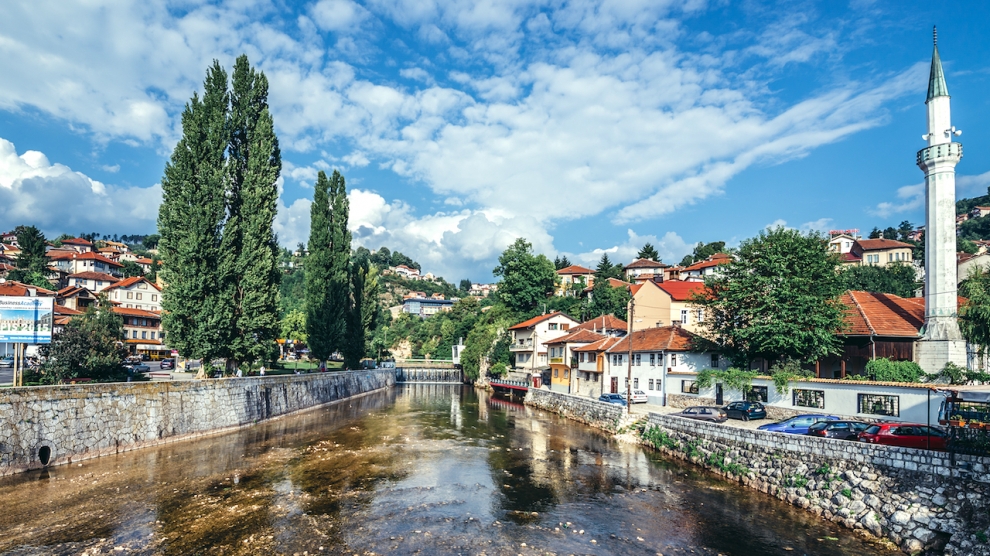“Bosnia and Herzegovina is a hybrid that does not work,” Milorad Dodik, President of Republika Srpska, one of two constitutional and legal entities of Bosnia and Herzegovina (BiH), said in May 2017. He is convinced that a referendum on the independence of this region will eventually take place.
“The threat of an independence referendum, alone, is enough to hamper the effectiveness of BiH as a state,” says Dimitar Bechev, director of the European Policy Institute (EPI) in Sofia. “President Dodik has been engaged in brinkmanship for a long time. However, when facing headwinds, he makes a U-turn. But more importantly, [the threat] diverts attention away from allegations of corruption involving Dodik and members of his family,” Mr Bechev adds.
In addition to Mr Dodik’s threat the ghosts of the past war, which ended less than a quarter of a century ago, are still lurking around the corner.
Raising awareness
“Bosnia and Herzegovina is the country that got out of the war and today, many know little about the country. They think it is weak, insecure and that fighting might break out among its new neighbours. But of course, this is not true,” Mirko Šarović, deputy chairman of the Council of Ministers and minister of foreign trade and economic relations, tells Emerging Europe.
However, whether the referendum takes place or not, it is business as usual for local firms as well as foreign companies, who are interested in investing in BiH, thus showing that even in a divided country innovative sectors, such as the energy one, can be attractive for foreigners.
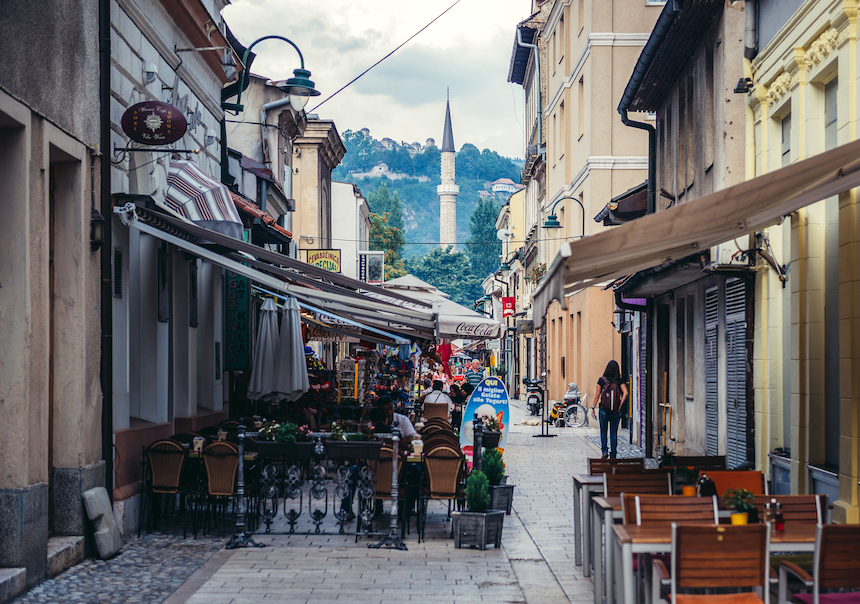
In addition, the country’s economy is growing. In Q12017, BiH’s GDP increased by 3.2 per cent. Bosnia and Herzegovina is becoming an increasingly more interesting tourist destination. Between January and May 2017, over 285,600 foreigners arrived in Bosnia and Herzegovina; 12.3 per cent more than in the same period of 2016.
“In early 2014, widespread protests took place in BiH, demonstrating the public’s growing frustration with the overall state of the economy. There was a widespread consensus that the deteriorating socio-economic situation could no longer be ignored and that something had to be done,” says Lars-Gunnar Wigemark, head of EU Delegation to BiH.
Discontent is high, but protests in 2013-14 showed that it does not easily translate into political leverage. Bosnia has lived in conditions of economic crisis for a long time.
Reforms on the table
In 2015, BiH started a process of structural reform called the ‘Reform Agenda’: It is aimed at improving the country’s poor business environment and putting the pensions’ systems on a more sustainable footing, as well as increasing increase the quality of public spending and public administration.
“These things are never easy and often require patience and sacrifice, but luckily we are already seeing some positive signs when it comes to employment, industrial production and exports, although there is still a long way to go,” Ambassador Wigemark comments.
After the successful 2014, when the country attracted FDI of €399 million, and the large drop of the following year, FDI inflow reached €258 million in 2016, six per cent higher than in 2015. According to the Foreign Investment Promotion Agency of BiH (FIPA), the share of FDI in the country’s GDP accounts for about one-and-a half per cent.
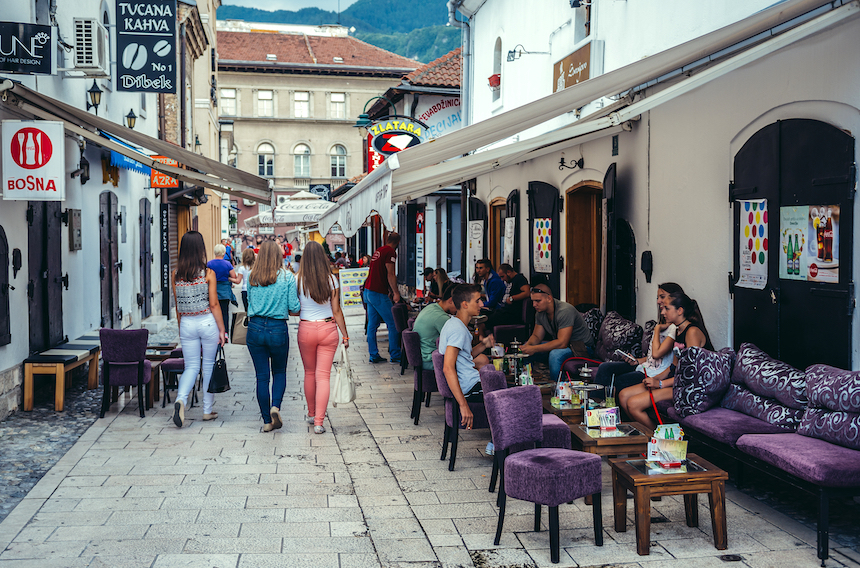
“It is well-known that foreign investors go where they don’t face administrative barriers or other obstacles to their investments. FIPA is working on proposing measures to improve the local business environment. Sometimes the implementation of those measures is going more slowly than we expected, considering our economic situation,” Gordan Milinić, director at FIPA tells Emerging Europe.
He says that the key task for Bosnia and Herzegovina is to send a message to the international business community that Bosnia and Herzegovina is a politically stable country. “This is our main challenge for the moment. We always have to explain that political crises are transit crises that do not influence foreign investments,” Mr Milinić explains.
Stability above all
“To facilitate business conditions and investments, BiH must first motivate investors through various structural reforms. Two different tax and fiscal systems, in the two entities, which automatically withdraw acceptance of duplicity and inconsistency is a challenge for us. On top of that there is legal uncertainty because of the necessary permits or approvals that have been waiting for about a year and more,” says Messer’s general director, Valentin Ilievski.
“The government’s objective, now, is to eliminate the legal and administrative obstacles for doing business, as well as to create the most attractive business environment in South East Europe,” says FIPA’s Mr Milinić.
Some results are already in place. In 2017, BiH ranked 81st, 14 notches higher than a decade ago. Paying taxes is one of the areas that has improved — 18 positions higher.
“Corporate income tax is ten per cent, now, and is among the lowest in the region. Operational costs are low, as well, and are significantly lower than in EU countries and are among the most competitively priced economies in the region,” Mr Milinić underlines, stressing the importance of foreign investments.
Sharing experiences
When it was still part of former Yugoslavia, BiH was a strong and important industrial centre, which shows the country’s potential to attract multinational investors across various sectors such as manufacturing, energy and tourism.
“Bosnia and Herzegovina has great potential in the field of energy; both renewable — water, wind, solar, biomass — and thermal energy based on coal reserves and this area could really attract investments worth up to €10 billion in the coming period. There is a significant auto-parts industry and the agricultural sector offers huge opportunities as well. Finally, there is tourism: winter and mountain tourism, ecotourism, spa tourism, cultural and religious tourism and partly marine tourism,” FIPA’s Mr Milinić adds.
The Austrian high-tech manufacturing company, NetQM, has been operating in the country since 2005.
“The flexibility and efficiency of Bosnian employees represents a perfect match for us,” says Markus Strasser-Stöckl, director at Mreža Network Derventa, part of NetQM. “Most of them are highly-educated and speak fluent German or English. Besides this, hourly wages are affordable and the quality of work is not jeopardised. Additionally, Bosnia lies only 600 km from Austria and that definitely represents an important factor for our company,” Mr Strasser-Stöckl adds.
Yet, logistics and the supply chain among BiH, Croatia, Slovenia and Austria are obstacles in order to fully develop the company. ”But if given the opportunity to invest again in the country I would say yes because the quality and the availability of workers are unparalleled and costs of investments in buildings and infrastructure are very low,” Mr Strasser-Stöckl adds.
Messer, which entered BiH in 1997, has created a modern technological base which has resulted in plants for the production and distribution of various industrial gases.
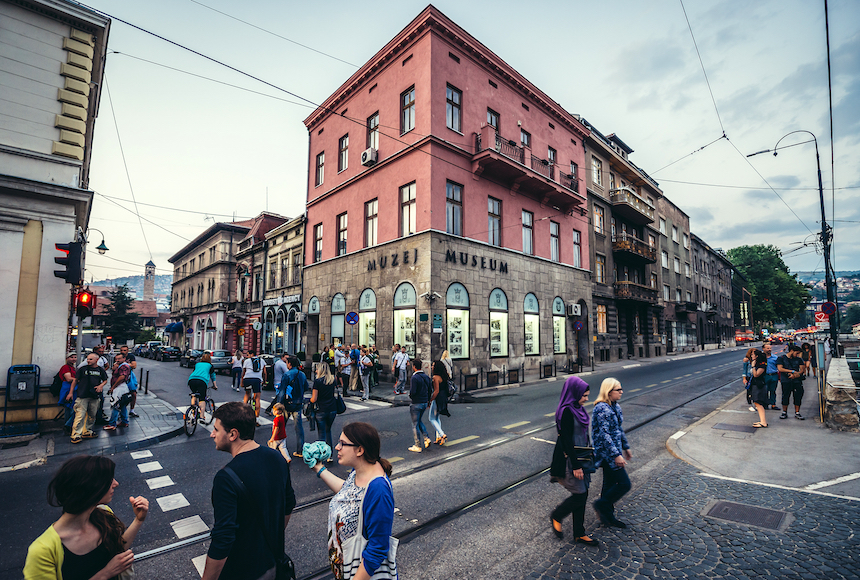
Untapped potential
“In the course of twenty years of operations in BiH, Messer has grown into a modern European company and has become a leading manufacturer and supplier to customers of industrial, food, medical and other special gases,” says Mr Ilievski.
Apart from manufacturing, energy and tourism there is also an ICT sector, which is one of the fastest growing areas in BiH. According to BIT Alliance, an umbrella association for the software development industry, there around 1,400 companies and about 2,500 to 3,500 programmers.
“Bosnia and Herzegovina is still unexplored and has potential for investments. Investors do not know enough about its potential. Thus, there are many resources, but there is no political will and business needs both,” he adds.
“I think there is still a huge untapped human potential in this country. Bosnian and Herzegovinians are amongst the best-integrated, most successful and respected members of our societies, and are living proof of the talent, hard work and entrepreneurial spirit of the people living here,” says Ambassador Wigemark.
“My hope is that, as the country moves closer to the EU, people will dedicate their time and effort into Bosnia and Herzegovina and will not pursue their luck abroad. I also hope that this process will motivate many Europeans to invest in sectors of huge potential, such as manufacturing, energy and tourism,” he adds.
The EU’s support
Being close to the European Union, which is already the country’s largest trade partner, is critical for BiH.
“Bosnia and Herzegovina predominantly wants to be part of the European Union, even after Brexit. We explain it by saying that our citizens see some kind of protection — a ”safety net” in the European Union, as well as economic progress,” says Minister Šarović.
Bosnia and Herzegovina was recognised as a potential EU candidate country as early as 2003, but it only formally applied for membership in 2016. Now, it is one of seven countries in line to join the Bloc, together with Albania, Serbia, Macedonia, Kosovo, Montenegro and Turkey.
“An overwhelming majority of people feel that the country’s rightful place is in the European Union”, Ambassador Wigemark says. “They deserve to share the same benefits as more than five hundred million citizens across the EU: better healthcare, better education and more prosperity. Without the Western Balkans, the European Union, a union for peace and a union of values, will never be complete.”
The BiH Convertible Mark, which has been pegged to the Euro, is considered one of the most stable currencies in South-East Europe. A report issued by the European Commission shows that BiH is making slow to no progress, despite the €23.2 billion spent by the EU as pre-accession assistance. The same report also talked about human rights violations, corruption and intimidation towards journalists and political activists, as the biggest obstacles to gaining EU status.
“Bosnia and Herzegovina has signed the Stabilisation and Association Agreement with the European Union, which is a step toward EU membership. The EU will help us to improve the capacity and efficiency of public administration, to strengthen the rule of law and to support social and economic development,” Mr Milinić says.
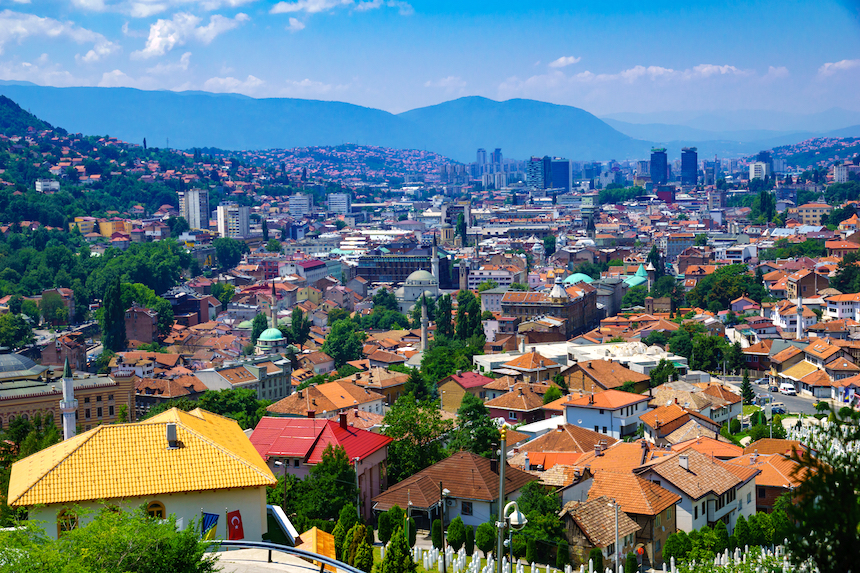
The future ahead
Mr Ilievski also has high hopes for the country. “I trust that we will be one of those economic, commercial and industrial factors of unification of Bosnia and Herzegovina that will integrate Bosnian space and that the next time, when we say that we want to be investors, the local community will recognise the importance of that investment and its benefits for everyone,” he says.
President Dodik’s words about an inevitable referendum echo again, in this context,.
“An independence referendum will be a step backwards,” says EPI’s Mr Bechev. “It seems to me that now Dodik has back-tracked, once again, and I guess a minimal level of cooperation is possible, even in the unlikely case of an independence vote. But it’s going to be ugly overall.”

